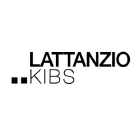WORKING WITH DG ECHO AS AN INTERNATIONAL ORGANISATION | 2021 - 2027
FRAUD
Fraud is a deliberate act of deception intended for personal gain or to cause a loss to another party. DG ECHO considers distinguishes between fraud and aid diversion:
Fraud relates to intentional actions or inactions by actors internal to DG ECHO’s partners or implementing partners or contractors whereas aid diversion occurs when aid is prevented from reaching its intended beneficiaries due to the action or inaction of actors external to DG ECHO’s Partner (e.g. armed groups, non-state entities, etc...).
PREVENTING, DETECTING AND RESPONDING TO FRAUD
Building a strong culture of integrity, with clear policies and procedures, helps your organisation prevent, detect and respond to fraud. It reduces the risk of financial, operational, and reputational harm. Your organisation should make sure all measures are effective and are implemented systematically.
REPORTING FRAUD
International Organisations must report cases of established and suspected fraud affecting the financial interests of the Union and their follow-up.
For such reporting, International Organisations are requested to submit all relevant information to the European Anti-fraud Office (OLAF). In addition, they must inform DG ECHO of the following:
- Established fraud with a financial impact on DG ECHO funds.
- Suspected fraud which may have significant impact on the operations funded by DG ECHO.
- Suspected fraud which is likely to have a reputational impact.
The reports to DG ECHO for these incidents should focus on the impact on operations rather than the specifics of the fraud, which will be disclosed to OLAF.
CONSEQUENCES OF FRAUD
Precautionary measures (allegation stage)
DG ECHO may take precautionary measures following the report of a suspected fraud. These include payment suspension under Art. 12.1 of the General Conditions for Humanitarian Aid Contribution Agreements (HACA). These measures are only applied if the suspicions are very severe and/or relate to fraud schemes beyond an isolated incident or if senior management of the (implementing) partner is suspected to be involved and/or if partners have not pro-actively disclosed the information or not taken adequate steps to respond to the suspected fraud.
Corrective measures (following confirmed fraud)
Once fraud is confirmed, DG ECHO may disallow the established amount of the fraudulent activity in accordance with the relevant legal provisions.
International Organisations whose staff have committed fraud (including if committed by their Implementing Partners) may be subject to provisions of the HACA’s general conditions, namely: reduction of EU contribution (Art. 20.3), suspension of the time-limit for payment (Art. 12.1), suspension of the agreement (Art. 12.3), or termination of the agreement (Art. 13).
These additional measures are only taken in very serious cases following a careful assessment by DG ECHO and in line with Article 2.3 of the HACA’s general conditions.
The following factors play a role when determining if any of the provisions above will be applied:
- The pro-active and timely communication by the International Organisation with DG ECHO and/or OLAF on the issue.
- The measures in place regarding the prevention, detection and response to fraud and how they were implemented in this specific case.
- The risk of additional fraud incidents (e.g. if the scope of the investigation is very narrowly defined).
External Informants and Whistleblowers
Any person, entity or institution, victim or witness of mismanagement or fraud in the framework of DG ECHO-funded activities may report to European Anti-fraud Office (OLAF) (Report fraud - European Commission)
The reporting tool allows for anonymous reporting, in any of the EU's official languages.
REFERENCE & DOCUMENT
Fraud allegation reporting for IO




